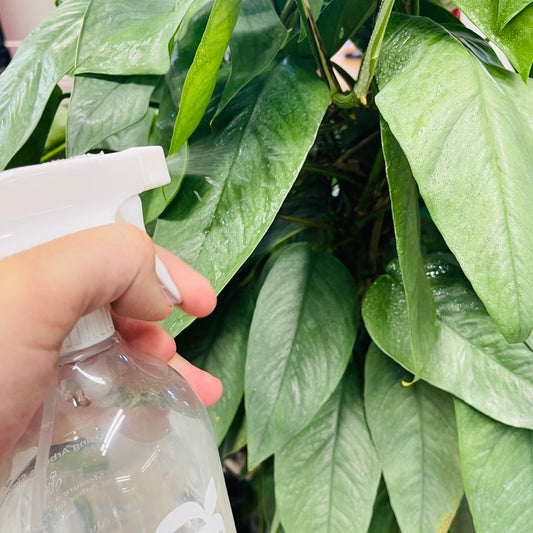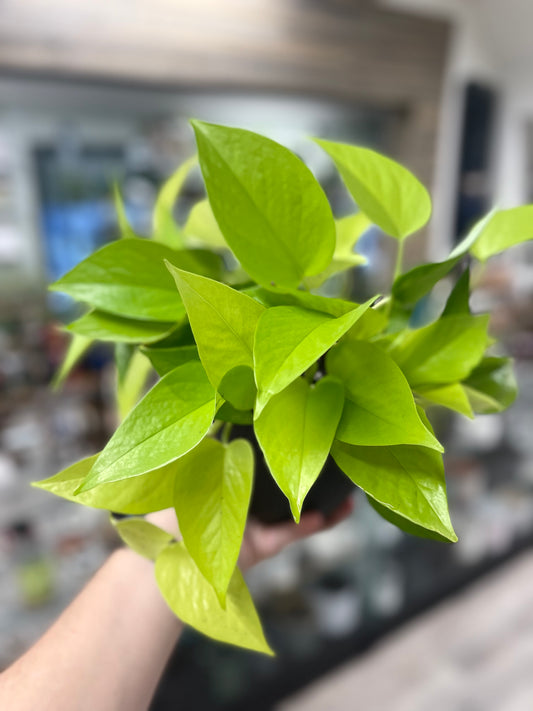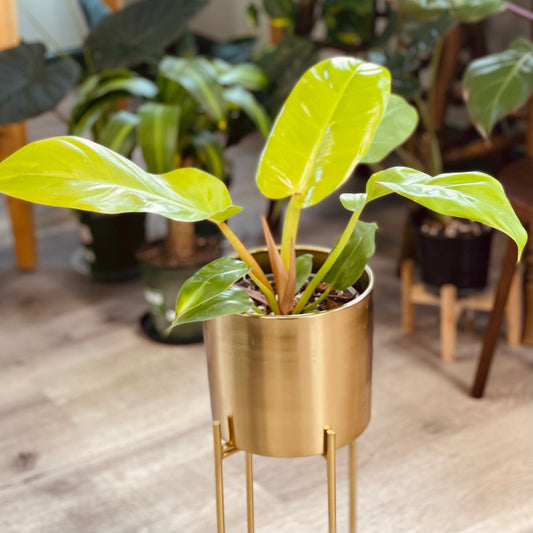
How To Detect: Aphids can be difficult to detect, but there are a few signs that they may be present on your houseplant. One of the most common signs is the presence of small, sticky honeydew on the leaves and stems of the plant. This sticky residue is excreted by the aphids and can attract other pests, such as ants. Another sign of aphids is the presence of curling or distorted leaves. Additionally, the leaves of the plant may appear wilted or discolored. If left untreated, an infestation of aphids can cause significant damage to a houseplant, leading to stunted growth or even death.

How To Treat: If you suspect that your houseplant has been infested with aphids, there are a few treatment options available. One safe option is to use a solution of water and dish soap. Simply mix a few drops of dish soap with water in a spray bottle and spray the solution directly onto the affected leaves and stems. Another less invasive option is to use a mixture of water and neem oil. Neem oil is a natural insecticide that can be safely used on houseplants. Chemical options are also available, such as insecticides containing imidacloprid or acephate which can be used to control aphids.

How To Prevent: Preventing an infestation of aphids on your houseplants can be challenging, but there are a few steps you can take to reduce the risk. One of the most effective prevention methods is to keep your plants healthy. A healthy plant is less likely to be attacked by pests. Additionally, regular inspection of your plants for signs of aphids is important, as early detection can help prevent an infestation from getting out of control. Another important step to prevent aphids is to isolate any new plants that you bring into your home, especially if they have signs of aphids or other pests. You can also use sticky traps near your houseplants to trap the aphids, which will help to reduce their numbers.

Quarantining a Plant with Aphids: If you suspect that your houseplant has been infested with aphids, it is important to take action to prevent the spread of the infestation to other plants. One effective method to do this is to quarantine the affected plant. Quarantine involves isolating the affected plant in a separate room or area, away from other plants, to prevent the aphids from spreading. This also allows you to treat the affected plant without risking the contamination of other plants. When quarantining a plant with aphids, it is important to keep the plant isolated for at least two weeks. This will give you enough time to treat the infestation and monitor the plant for any remaining signs of pests. Additionally, it is important to thoroughly clean the area where the plant was previously located and to disinfect any tools or equipment that may have come into contact with the infestation. It is also important to check your other plants for signs of aphids, as it's common for them to spread.




![Dracaena marginata (16" Plastic Pot) [ID #47618480]](http://zenrockford.com/cdn/shop/files/image_992491d2-6277-4893-842f-11e2983f137e.jpg?v=1725732294&width=533)
![Philodendron Florida Bronze (10" Nursery Pot) [ID #29432345]](http://zenrockford.com/cdn/shop/files/image_a67d0fb6-348e-4829-a7eb-64ce015a3b39.jpg?v=1725643115&width=533)
![Aglaonema Manilla's Pride (3" Plastic Pot) [ID #33051624]](http://zenrockford.com/cdn/shop/files/image_1fb45f38-7b6b-412c-aa29-ed2df326d106.jpg?v=1753291075&width=533)
![Scindapsus Silver Lady (8" Clay Pot w/ Moss Pole) [ID #47128926]](http://zenrockford.com/cdn/shop/files/image_f5c79dcd-5dd4-4ba3-9cf7-f49da779e5ea.jpg?v=1726510803&width=533)